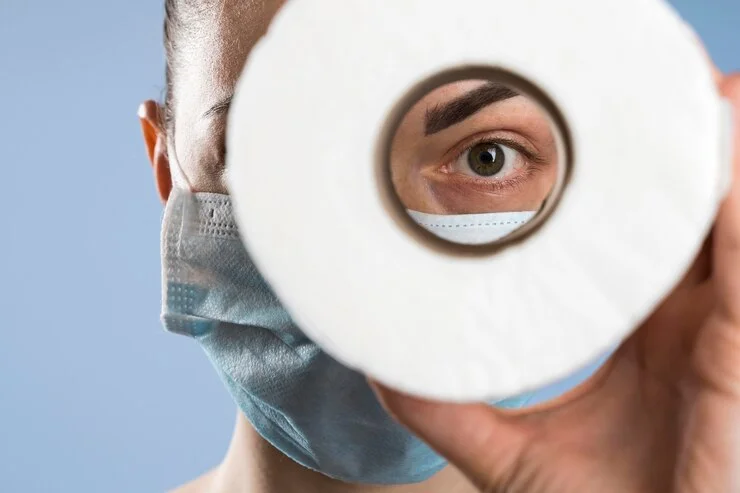Pushpanjali Eye Care Hospital, Golpark, Kolkata-700029
Pushpanjali Eye Care Hospital, Golpark, Kolkata-700029

By PushpanjaliEyeCare
21.10.2024
Hello Reader!
Welcome to the blog page of Pushpanjali Eye Hospital, one of the best eye hospitals in Kolkata.
Corneal transplant surgery are an extremely important surgery for most patients with damaged or diseased corneas, but, like most clinical and medical procedures, so are the myths and misconceptions surrounding them. It is with this particular interest that this article tries to address five common myths regarding keratoplasty, providing accurate information that will guide you through decisions regarding your eye health from the Best Eye care in Kolkata.
Understanding facts on such myths is an essential part of taking up this life-changing procedure or if someone close to you is making a consideration.

Corneal Transplant Surgery
Before we embark on the myths, let us try a brief explanation of what a corneal transplant is. The cornea is the semi-transparent, dome-shaped surface at the front of your eye. It focuses light and protects your eye from dust and bacteria. When the cornea becomes damaged or diseased, a Corneal grafting may be necessary to restore vision. In this procedure, the damaged cornea is replaced with healthy tissue from a donor. People must be aware of Corneal Transplant Surgery.
Care needs to be taken to strictly follow post-surgical guidelines for closely guided operations, as suggested by your eye care specialist. In the event of complications, the earlier they can be identified, then the sooner treatment can be started and one’s recovery will be the better. keratoplasty is need for eye patient.
It is important to track closely to see how well the transplanted cornea is healing. Early indications of rejection will easily be detected by your doctor, hence there can be treatments to prevent further complications. Corneal Transplant Surgery essential for eye treatment.
If you are concerned about the waiting time, raise this with your ophthalmologist who should be in a position to communicate to you the details of donor cornea availability in your locality. Corneal grafting is common myth now a days. People also searched best cornea treatment in Kolkata then Pushpanjali Eye Care is one of the best name for this.
Post-operative care, including adhering to your physician’s follow-up instructions, return visits, and caution in heavy eyes activities, is critical for a hassle-free recovery process.

A trusted medical provider must be sought in searching for corneal transplant surgery. The Best Eye Hospital in Kolkata, being advanced in treatment and services with the most qualified ophthalmologists, can provide the latest techniques in keratoplasty procedures. Support system is given according to the needs and requirements of each patient to ensure the best outcomes.
Here at the Best Eye Hospital in Kolkata, the experienced medical team with special skills in performing corneal transplants with a high success rate is committed to providing state-of-the-art care so that its patients may have access to the latest in medical technology and surgical expertise.
Read here for more:- What is Cornea: Its function and importance for vision
Although a corneal transplant can last for many decades in a healthy manner, there are instances where further surgery is necessary later in life.
The surgical procedure itself does not cause any pain since anesthesia is administered. However, after surgery, you may feel some pain, and your doctor would guide you on the use of certain medications prescribed for alleviation of it.
Most patients will need corrective glasses or contact lenses after a corneal transplant. The need for the use of these devices will depend on how successful your transplant is and heals.
Recovery will take some time; for at least a couple of weeks following surgery, you will be required to avoid vigorous activities. Your surgeon will advise you of the specific periods once you can return to normal life activities.
For example, more simplified treatment for some patients would be much-needed corneal cross-linking. However, for more serious cases, a transplant may be the last resort. Be sure to sit down and discuss with your eye doctor what works best for your condition.
For people whose loss of vision is due to the damaged or diseased cornea, a corneal transplant may be the word that describes a life-changing experience. Although there are myths and misconceptions that make it sound daunting, knowledge of facts will indeed calm down patients’ concerns and thus lead them to make the right decisions.
By removing all these myths, we have proved that the corneal transplant is safe and effective and accessible. So, if you are planning to undergo this treatment, then consult a trusted doctor, the Best Eye Hospital in Kolkata. Here one can get every modern treatment facility and personalized care for each and every patient.
